Two new coffee roasters have caught our attention: one is shifting focus to lesser-known plantations and the other is on a mission to put the South Indian filter brewing method on the world map
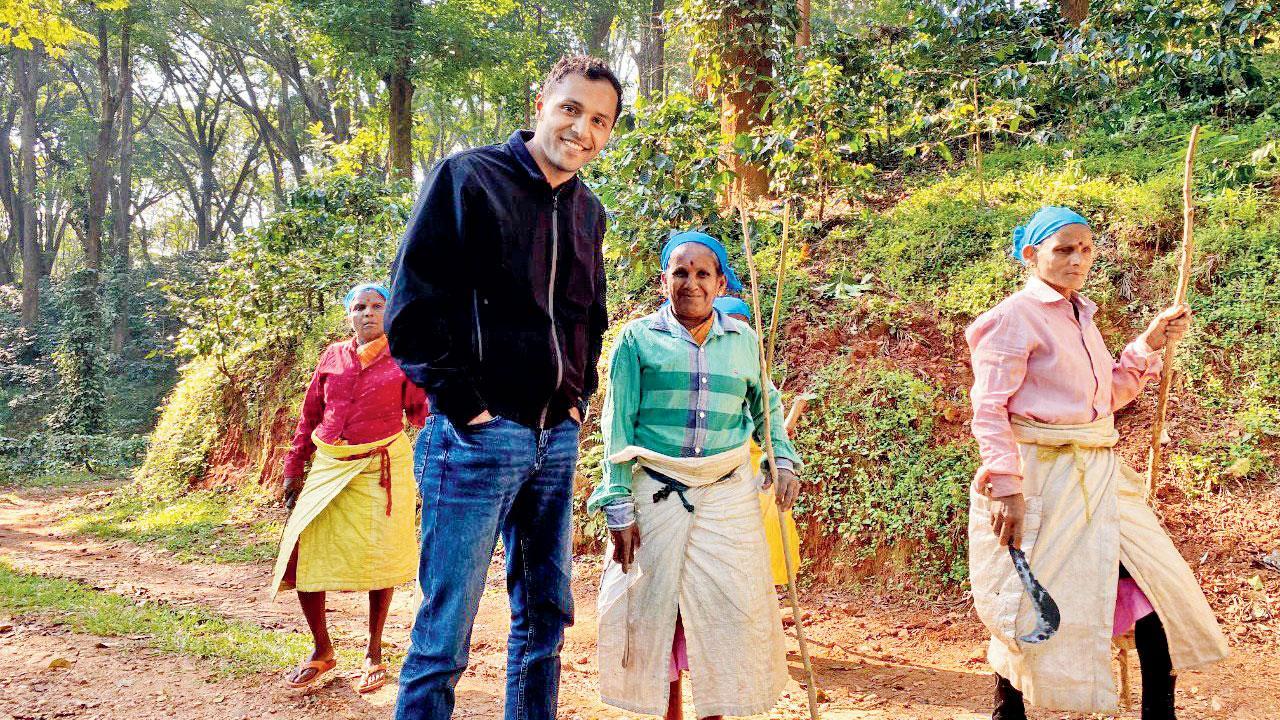
Chirag Oswal with coffee farmers in Chikmaglur
The third wave—and we don’t mean that of Covid-19 but the specialty coffee bean to cup brewing trend—is well and truly grown. We are in fact, just around the bend of the fourth wave, but the current transition phase is giving many new coffee roasters the chance to experiment with the principles the third wave and create process-focussed blends and single-origin coffees. Last month, two independent coffee makers caught our eye. One is based in Bengaluru; the other is closer home in Pune.
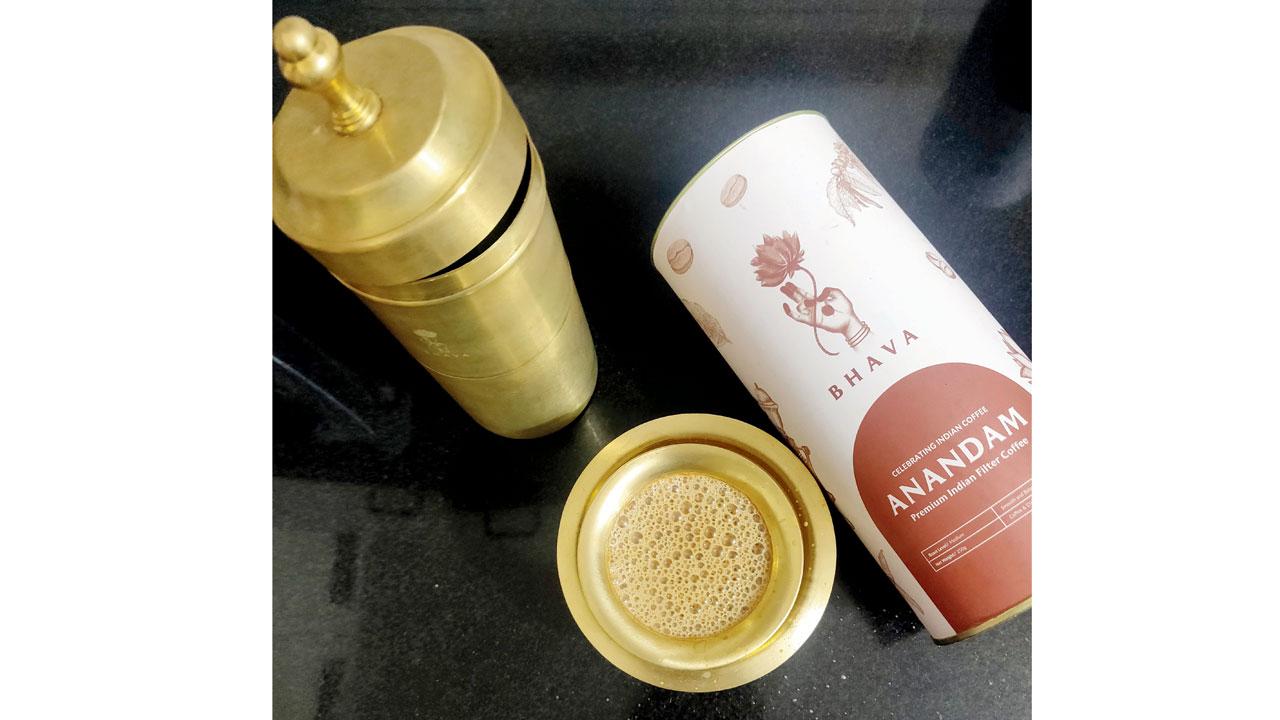
The dabba filter makes a great brew
Celebrating Indian filter method
Every specialty coffee blend launched by Bhava is called Indian Filter Coffee. Its Bengaluru-based founders Bharath GB and Prashanth Nayak have shifted their focus to the south Indian filter coffee method. They hope it gets its national due. A typical South Indian filter coffee drinker expects three things from their coffee: it has to be strong; it has to have a burnish brownish colour and the taste should linger on the palate for half-an-hour after enjoying a cuppa, says Bharath, drawing from research. “People who don’t consume filter coffee are not okay with this [taste]. We wanted to make a filter coffee that put the Indian coffee-making method at the forefront. There already exists a trend of single-origin coffee, but we are focusing on the quality and blending too. We make our coffee using peaberry, which is how our grandfather originally drank it,” Bharath says.
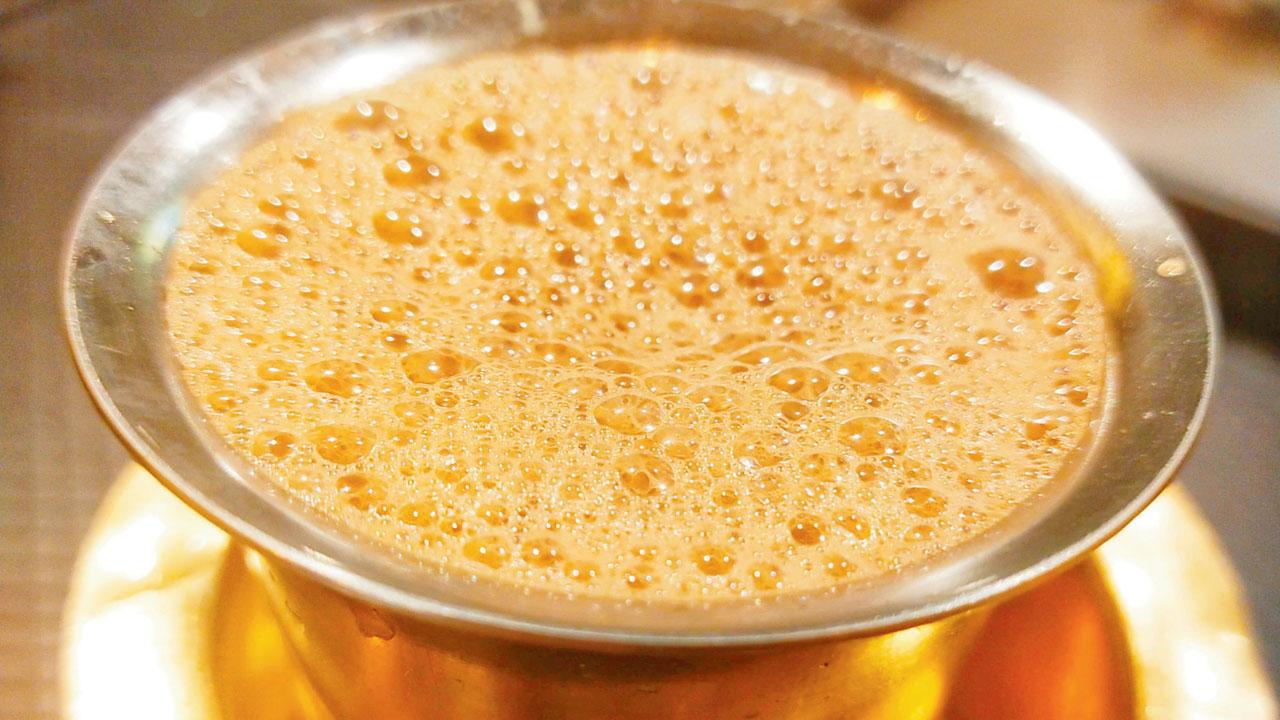
Their first blend was Dainika, meant primarily for the filter coffee drinker. The second, Asmita, came with a tag of premium. This writer tried two blends: Asmita (Rs 300) and Anandam (Rs 400). We test the first using a pour-over filter, a method we use for our everyday cup. The cup is dark and nutty, and there is no acidity in the aftertaste. A mix of robusta and Arabica beans, it wakes us up and keeps us sprightly for half the day. This blend has Mysore coffee nuggets, Monsoon Malabar and Robusta Coffee Royale.
For Anandam, we use the dabba filter that the team has sent across. We add two teaspoons in the upper percolated compartment, place the umbrella and add two more spoons, along with a generous spoonful of sugar. We place it on the lower compartment and top it with water, and close the top. Ten minutes later, the concoction is ready. This can also be consumed as black coffee. We transfer it to a pot and put it on the stove, add hot milk and bring it to a boil. The coffee is a precise Madras filter coffee hitting all the right notes on the palate and refreshing our senses.
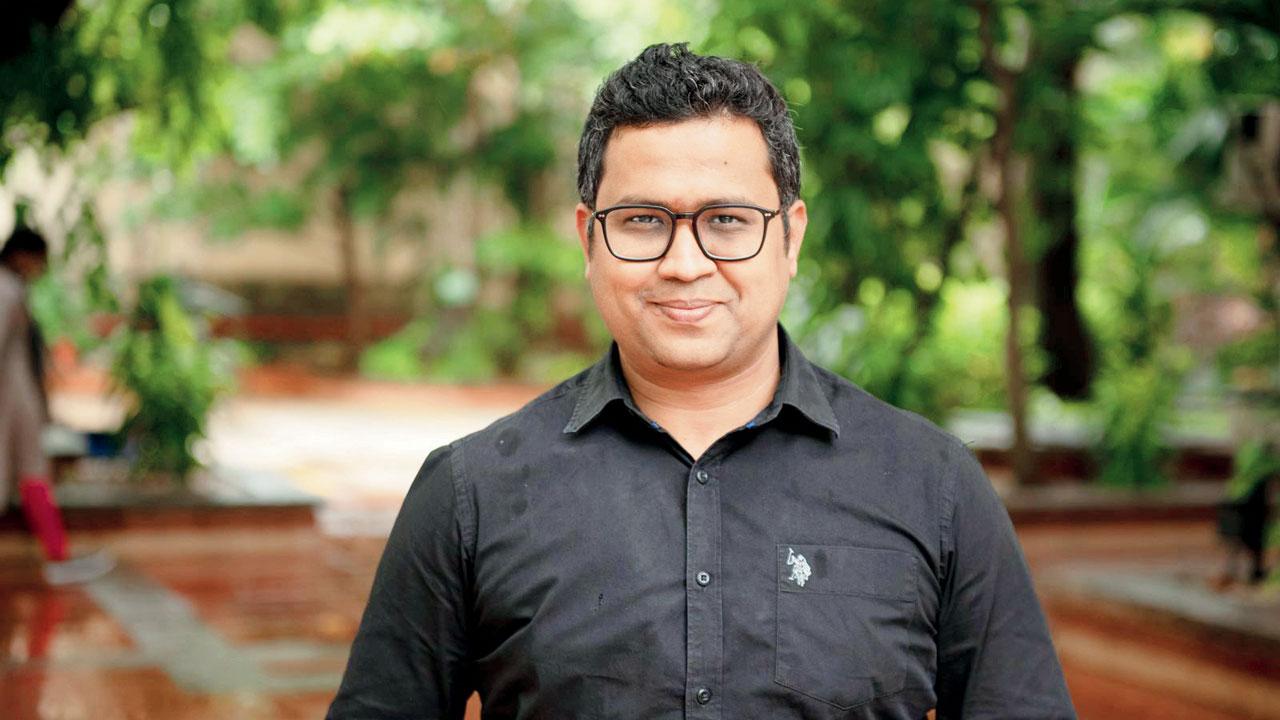
Bharath GB
We have forgotten to use our old filter method. While researching for coffee, the duo realised that most expert communities were not keen to have something made with filter coffee. The argument was that it is a price-sensitive niche market. Bharath defers. “But we were confident and clear that we wanted to create a blend that tasted good and was on par with any new-age brewing method. The filter coffee decoction is as good as a French press. We want the Indian filter to be part of brewing methods used around the world. India is the fifth-largest coffee producer in the world; it is time we have a brewing method in our name.”
www.bhavaearth.com
Focus on undiscovered estate
Early this month, Koregaon Park Lane No. 6 paved the way for Pune’s first roastery and café that serves speciality cuppas and eats. Founder Chirag Oswal launched the GreySoul online specialty coffee store first. This was last year after he had spent the better part of the first lockdown taking long bus rides to Karnataka and charting cupping sessions with coffee growers. Oswal, who owns an ad agency in Pune, began his coffee journey eight years ago as an enthusiast, journeying from sipping latte and cappuccino at mass cafe chains to owning his own Breville coffee machine. This was followed by the third wave of specialty coffees and diving into trying different brewing styles from French press to moka pot, pour over and siphon.
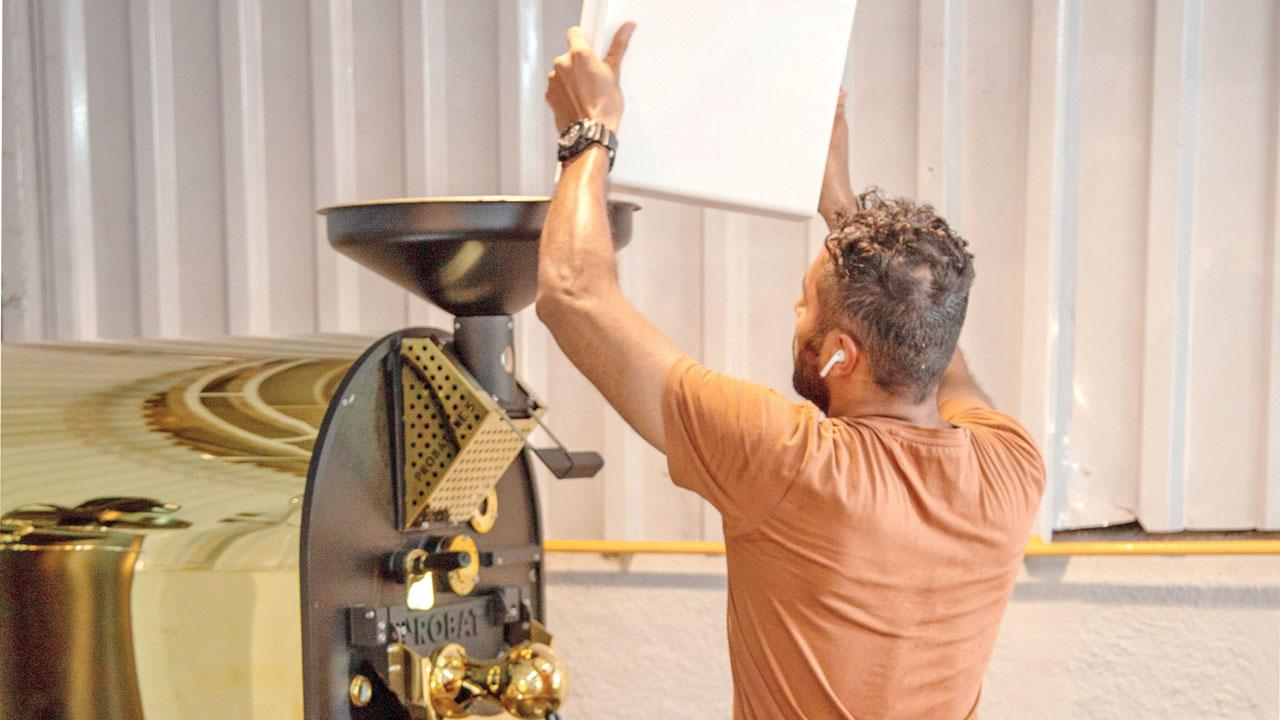
Oswal spent over three weeks understanding specialty coffee and coffee processing while staying with producers across different estates, he says, and another two weeks getting a certification in roasting and practical training in Q Grading. GreySoul deviates from the third-wave coffee roasters by focusing on experimental roasting and identifying and working with smaller, independent farms like Kogilahalla and BiCode Estates, in addition to the popular Harley, Barabara and Ratnagiri. “This helped us focus on undiscovered estates that eventually went to become our bestsellers,” he tells mid-day.

This writer brought home two bags: Barbara Medium-Dark (washed) and Burundi Washed from Harley Estate (R375). “The lockdown made it easy for us, as more people started brewing coffee at home and became familiar with specialty coffee. We focus on the roast profile and coffee processing. Our top seller from last year was Mango and Loop from the Kogilahalla Estate. It has run out. We alternate this crop, so it will be available only next year. At any given time, we have over 20 specialty coffees to brew and serve at our cafe.”
Grey Soul Coffee Roastery & Brew Bar
Grey Soul Coffee Roastery & Brew Bar, A/2, Shahinsha Society, Lane No. 6, Koregaon Park, Pune; 8.30 am to 11 pm
Greysoul.coffee
 Subscribe today by clicking the link and stay updated with the latest news!" Click here!
Subscribe today by clicking the link and stay updated with the latest news!" Click here!










